
Culture China
18:25, 21-May-2019
Centuries-old knife-making craft faces preservation challenges
Updated
19:08, 21-May-2019
By Yang Jinghao, Luo Caiwen
03:11
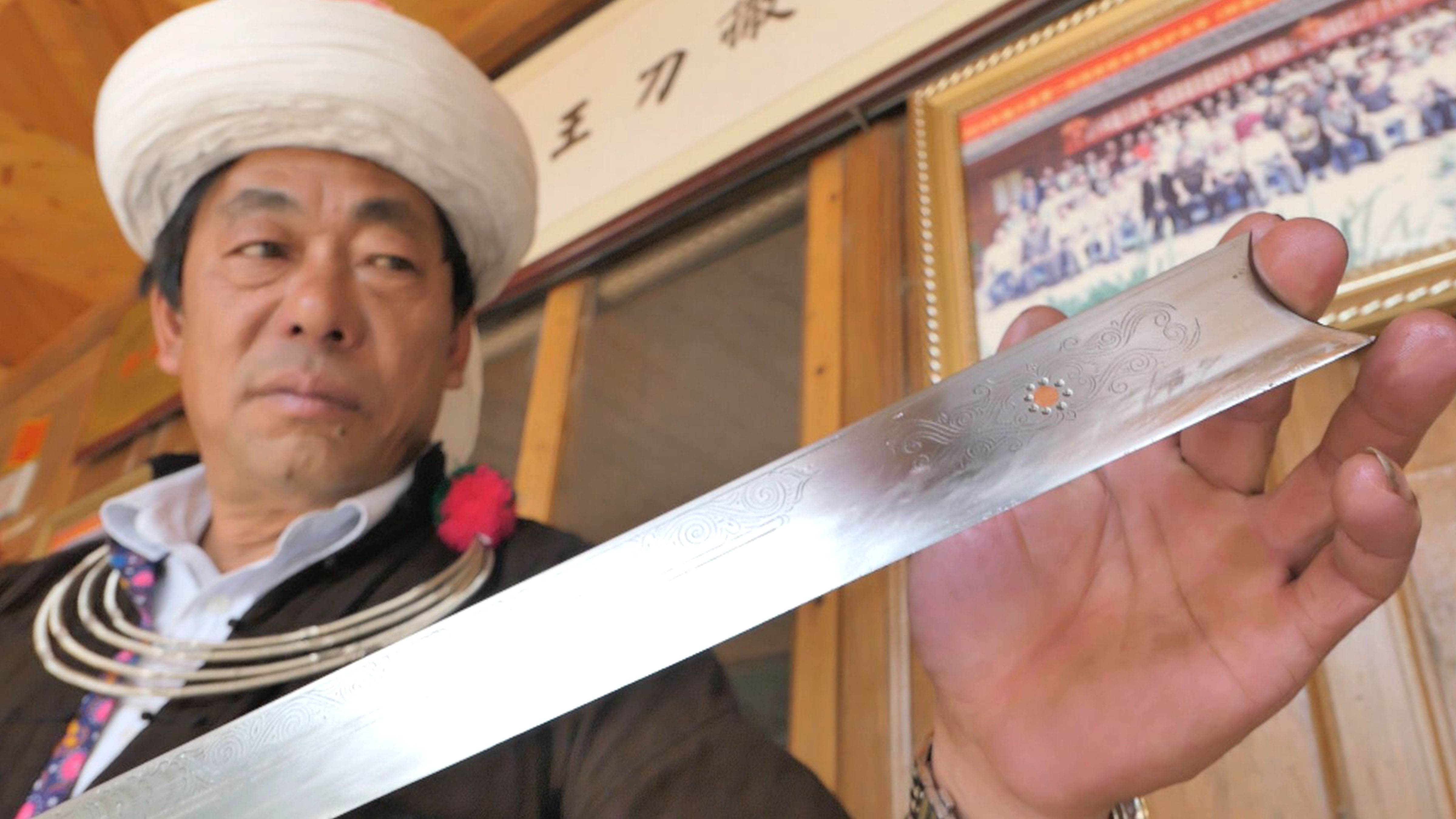
Xiang Laosai says he has the sharpest knife in the world. The 57-year-old knifesmith from Husa town in southwest China's Yunnan Province still keeps making knives, a skill he acquired from his father at an early age.
"I felt dissatisfied even after grasping my father's skills, so I decided to learn more from other masters. All the families in my village made knives back then. Every time I heard forging noises somewhere, I would rush over to help and learn," Xiang told CGTN.
Before long, he grew into a master-hand in the small town in Longchuan County that borders Myanmar, a major habitat for Achang people, one of the smallest ethnic groups in China. The knife-making history here can be traced back some 600 years, when the tool was used as a military weapon.
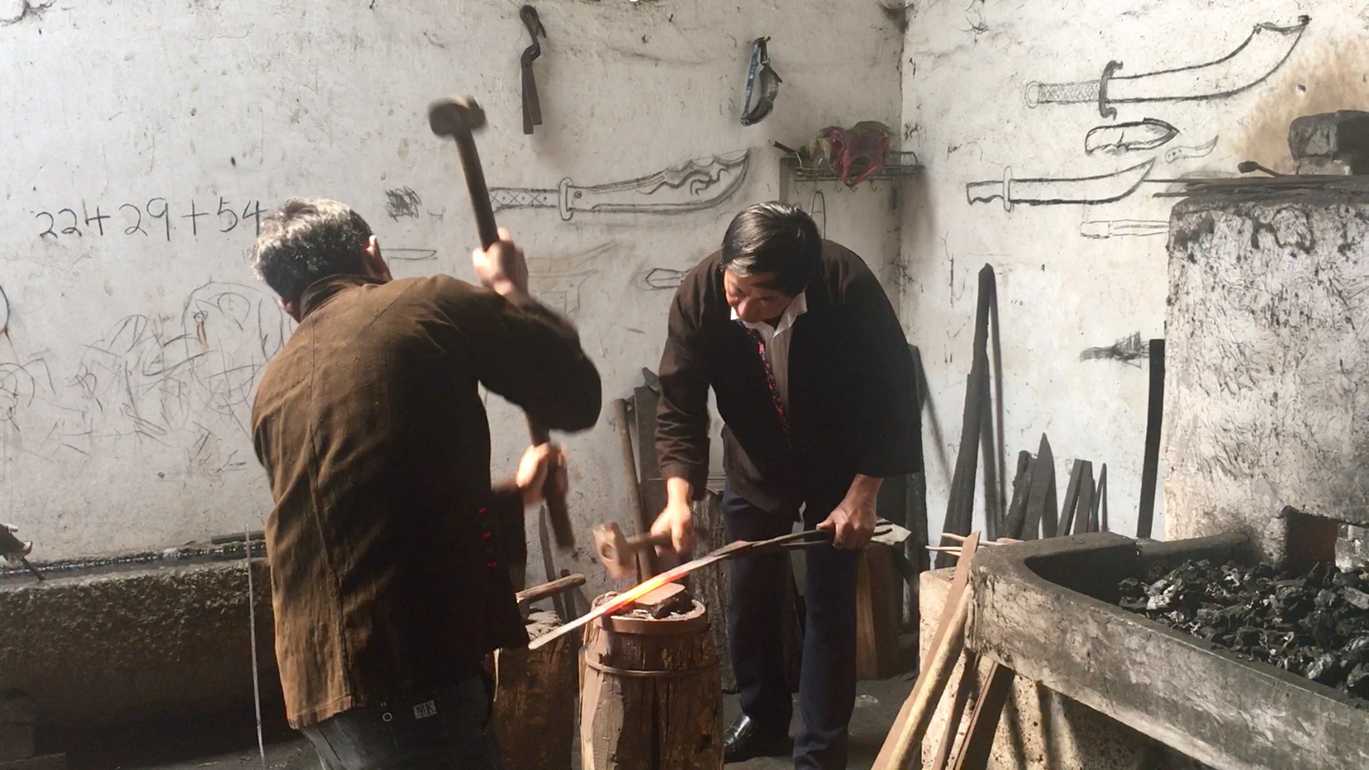
Xiang Laosai and his youngest son forge a knife. /CGTN Photo
Xiang Laosai and his youngest son forge a knife. /CGTN Photo
Over the centuries, knives of different types have played an important role in Achang people's life – their daily lives, farm work, weddings, and traditional festivals.
"Each Achang man has at least three knives of their own in life – for their birth, 18-year-old birthday and wedding respectively," said Xiang.
In 2006, the craft was listed among the nation's first batch of intangible cultural heritage for its long history and special role for the ethnic minority.
But just like many other icons of cultural heritage, this centuries-old craftsmanship also faces a pressing issue — how to preserve it by passing it down to the future generations. This is also what Xiang, a national-level inheritor, worries about.
"I am concerned that this special ethnic culture will be lost some day. Making knives is very laborious and tiring, and the majority of the young generation is unwilling to endure it, as they have more options today," said Xiang.
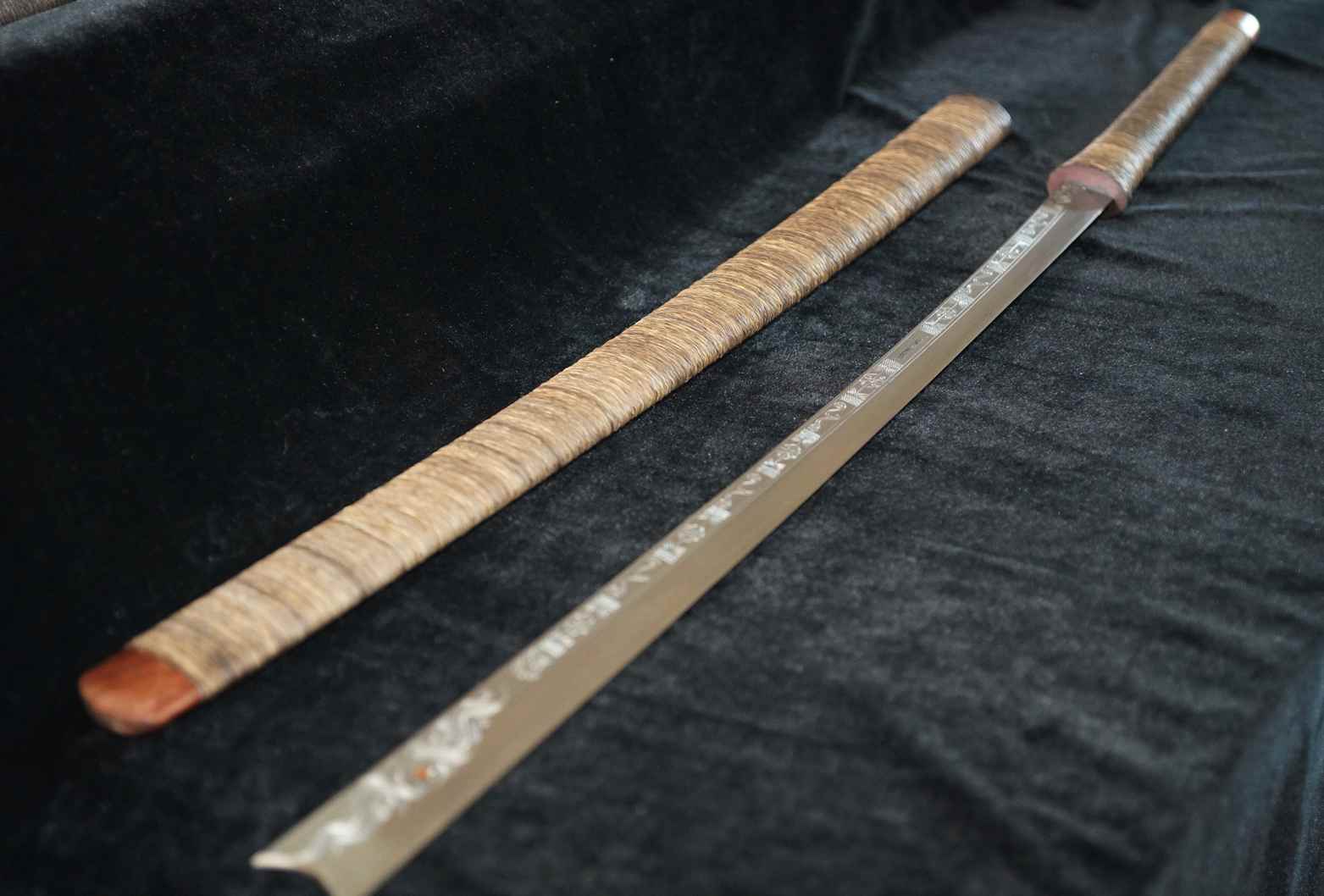
A knife made by Xiang family on display. /CGTN Photo
A knife made by Xiang family on display. /CGTN Photo
It's really a job that needs great patience and experience. It takes some 10 steps to make a Husa knife, with quenching being a critical one.
Xiang, who is dubbed as the "king of Husa knives," apprentices all his four children. Xiang Hong'an, the youngest, started learning the techniques since he was still an elementary student.
"In the first two years, I just helped my father operating the bellow manually. It's boring, but I was determined to acquire the craft," he said.
The young man said he loves this work and can make a good living on it. But he also faces multiple challenges, such as strict knife control regulations in the country.
"Many kinds of our knives are prohibited from express delivery, though they are popular. This, of course, hurts knife-makers' enthusiasm. It's really a headache!” said Hong'an.
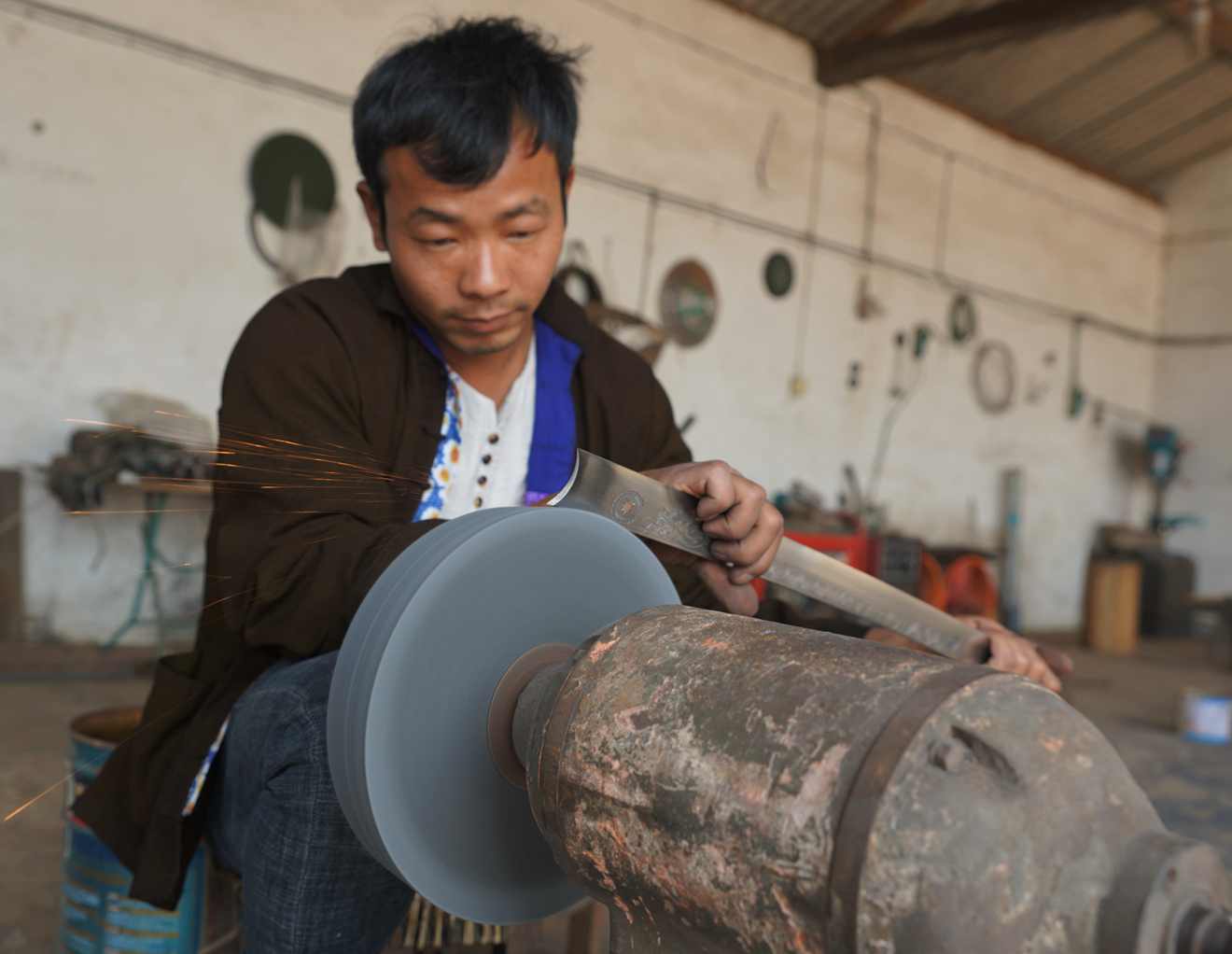
Xiang Hong'an, the youngest son of Xiang Laosai, makes a knife at home. /CGTN Photo
Xiang Hong'an, the youngest son of Xiang Laosai, makes a knife at home. /CGTN Photo
Now, the family, like other villagers, focuses more on producing kitchen knives, which are free from such restrictions. Even so, they still face competition from the machine-processed products.
To promote sales, the young man turns to modern technologies, such as live streaming.
"It's of great help. People from across the country can watch our latest works online, and they can make orders conveniently," said Hong'an.
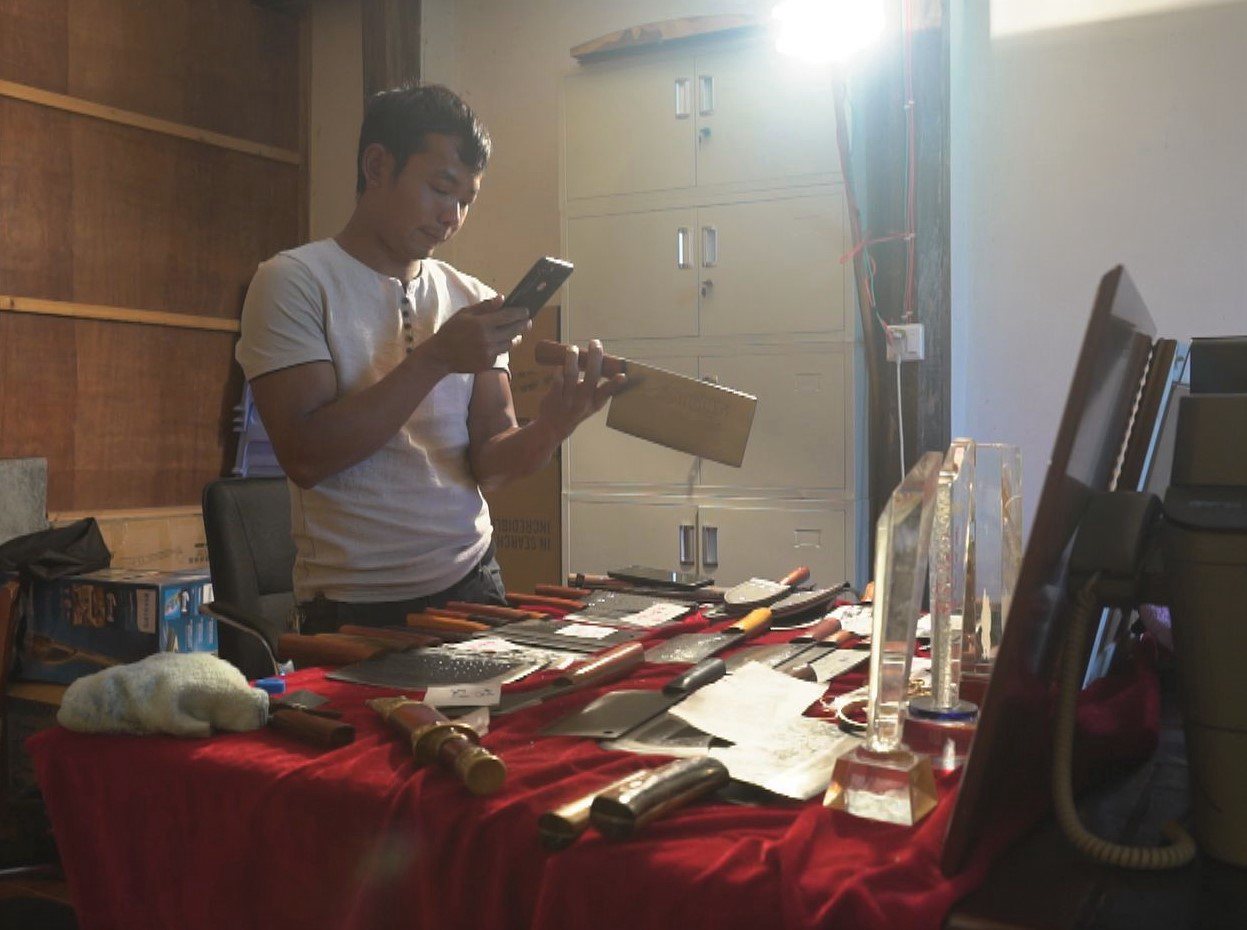
Xiang Hong'an sells kitchen knives via live streaming on his smartphone. /CGTN Photo
Xiang Hong'an sells kitchen knives via live streaming on his smartphone. /CGTN Photo
By virtue of the fame of the knives, now local villagers try to diversify their source of income.
Xu Nanyuan, the only female successor of the craftsmanship in the town, said she now attempts to develop rural tourism by inviting tourists to watch and experience the knife-forging process at her family's studio. She can also organize locals to give ethnic performances.
Both Hong'an and Xu said that making knives in their traditional way is a lifetime undertaking.
"I would like to share what I've acquired with anyone interested in it and will try my best to do so," said Hong'an.
(Cover: Xiang Laosai, who is dubbed as the "king of Husa knives," shows one of his best knives. /CGTN Photo)

SITEMAP
Copyright © 2018 CGTN. Beijing ICP prepared NO.16065310-3
Copyright © 2018 CGTN. Beijing ICP prepared NO.16065310-3